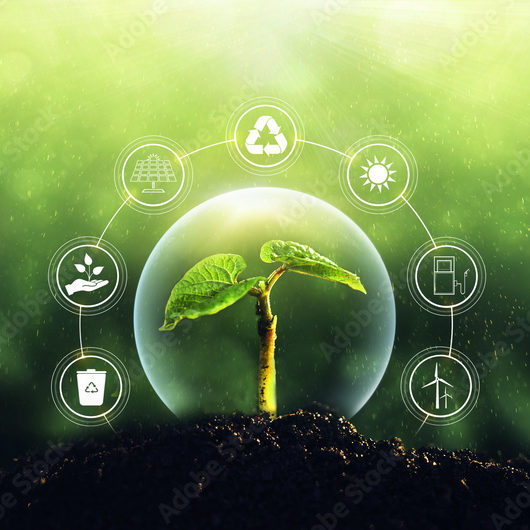Background
In the face of the challenges, we deal today, adaptation to climate change and decarbonisation of the global economy call for the most challenging transformation patterns for humanity as a whole.
The last decades have provided clear evidence of the effects of climate change, presenting vulnerabilities in every corner of the planet. The intensity of climatic phenomena and natural disasters is relentless as they pass through villages, towns and cities, and every day the risk of preserving biodiversity and the well-being of people is becoming more fragile. The evidence reported by the scientific community (most recent IPCC report[1]) leaves no doubt that climate change stems from human activity and that there is an urgent need to reduce greenhouse gas emissions. This requires transforming the trend economic models based on unbalanced extraction and exploitation of resources that govern the patterns of production and consumption, the model of territorial occupation and the socio-economic model that organise the 21st century society. IPCC also pronounced the fact of requiring a holistic approach for climate adaptation strategies.
Great progress has been made in defining solutions and strategies for urban transformation and more sustainable production and consumption, but there is still a long way to go. The great challenge is therefore to undertake the transition to a low-emissions scenario, that is resilient to the adversities of climate change and to the economic adversities that the transformation itself may bring to society. Cooperation and collaborative approaches among countries, regions and communities becomes essential. The future is overcoming the historical gap between territories and start building bridges based on knowledge transfer and alliances that care about equality and win-win solutions.

